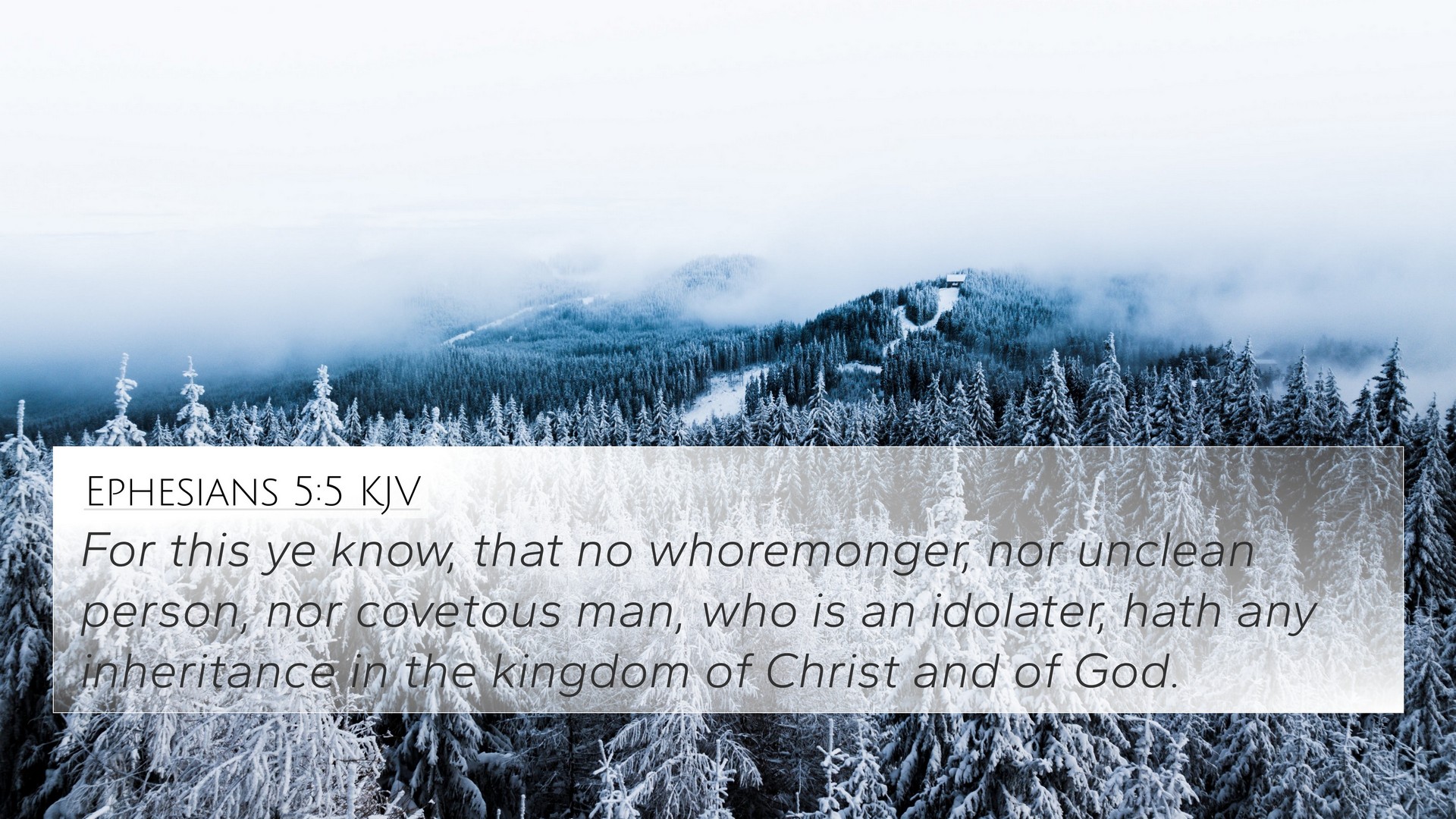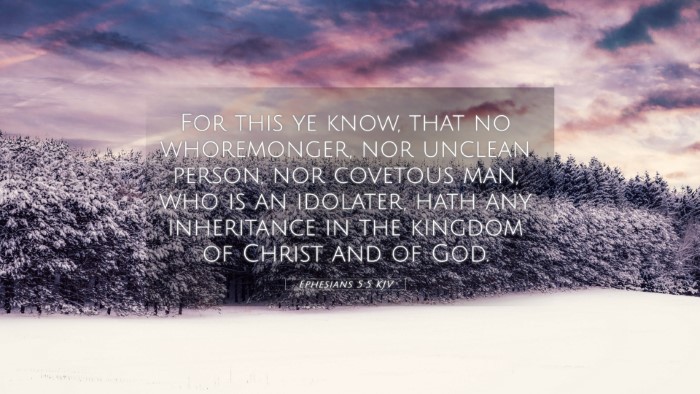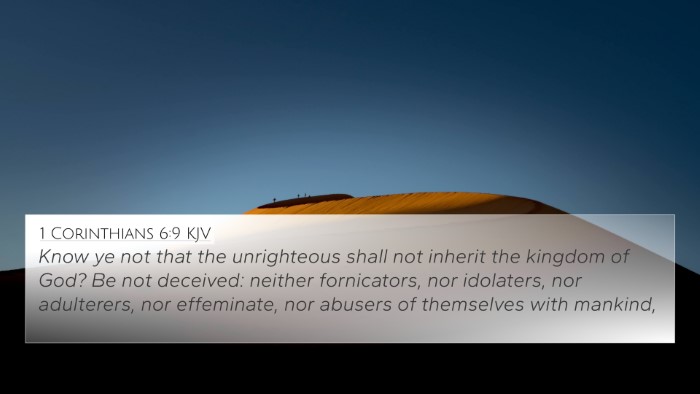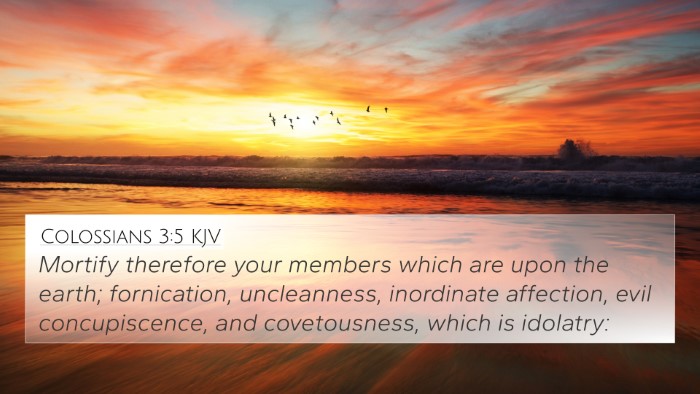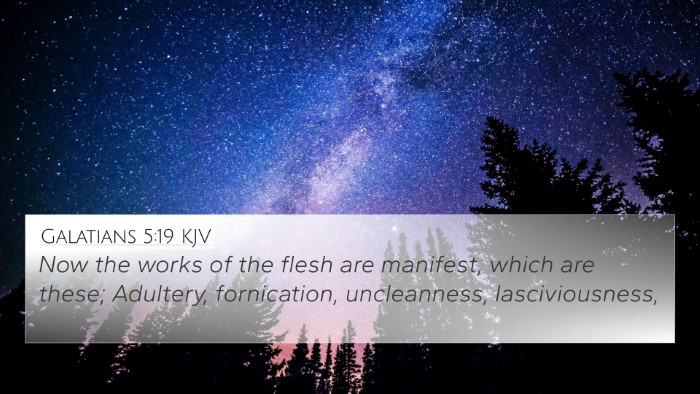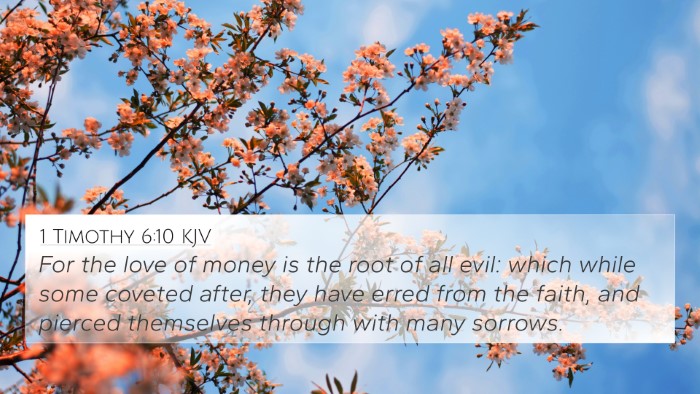Understanding Ephesians 5:5
The verse Ephesians 5:5 states:
"For this you know, that no whoremonger, nor unclean person, nor covetous man, who is an idolater, hath any inheritance in the kingdom of Christ and of God."
Meaning of Ephesians 5:5
This verse offers a serious warning about moral conduct and the expectations of believers in relation to God's kingdom. The Apostle Paul categorically states that certain behaviors disqualify individuals from inheriting the blessings of eternal life.
Key Themes Explored
- Moral Conduct: Paul emphasizes the importance of living a life that aligns with Christian principles, highlighting the impact of sinful behavior on one's spiritual inheritance.
- Idolatry: The connection of covetousness to idolatry reminds us that material desires can become gods in our lives, leading us away from authentic worship of God.
- Inheritance in Christ: This verse underlines that only through faith and righteous living can one secure the inheritance promised by God.
Commentary Insights
Insights from public domain commentaries help deepen our understanding of this verse:
-
Matthew Henry:
Henry states that the behaviors listed are reflective of a life estranged from God. He emphasizes the necessity for believers to examine their lives against the standards set forth by Scripture.
-
Albert Barnes:
Barnes notes that Paul addresses these forms of unrighteousness as barriers to receiving God's grace. He suggests that true Christians should exhibit behaviors contrary to those mentioned in this verse.
-
Adam Clarke:
Clarke delves into the implications of being an ‘unclean person’ and poses the question of purity in both action and thought. He highlights that Paul’s words reflect a call to holiness and spiritual integrity.
Cross-References of Ephesians 5:5
This verse connects to several other passages throughout the Bible, forming a consistent theme of righteousness and inheritance:
- Colossians 3:5: “Mortify therefore your members which are upon the earth; fornication, uncleanness, inordinate affection, evil concupiscence, and covetousness, which is idolatry.”
- Galatians 5:19-21: “Now the works of the flesh are manifest, which are these; Adultery, fornication, uncleanness, lasciviousness, ... they which do such things shall not inherit the kingdom of God.”
- 1 Corinthians 6:9-10: “Know ye not that the unrighteous shall not inherit the kingdom of God? Be not deceived: neither fornicators, nor idolaters, nor adulterers, nor effeminate, nor abusers of themselves with mankind...”
- Revelation 21:8: “But the fearful, and unbelieving, and the abominable, and murderers, and whoremongers, and sorcerers, and idolaters, and all liars, shall have their part in the lake which burneth with fire and brimstone...”
- Romans 1:24-25: “Wherefore God also gave them up to uncleanness through the lusts of their own hearts, to dishonour their own bodies between themselves: Who changed the truth of God into a lie, and worshipped and served the creature more than the Creator...”
- 2 Timothy 2:19: “Nevertheless the foundation of God standeth sure, having this seal, The Lord knoweth them that are his. And, Let every one that nameth the name of Christ depart from iniquity.”
- Ephesians 4:29-30: “Let no corrupt communication proceed out of your mouth, but that which is good to the use of edifying, that it may minister grace unto the hearers.”
Thematic Connections in Scripture
The interconnectedness within scripture emphasizes the necessity of holiness and the assurance of one's eternal destiny through faith and moral conducta:
- Righteousness vs. Sin: The overarching theme paints a clear dichotomy between those who live according to the Spirit and those who indulge in the flesh.
- Inheritances of the Kingdom: Numerous references across both Testaments highlight the concept of inheritance in God's kingdom based on one's relationship with sin.
- Exhortation to Holiness: This encourages ongoing introspection and the imperative to live a life that reflects one's faith and commitments.
Conclusion
Ephesians 5:5 serves as a vital reminder of the spiritual reality that one's conduct is intrinsically linked to their inheritance in God's eternal kingdom. Through the insights from eminent commentators and the interconnected scriptures, believers are encouraged to pursue holiness and reflect on their lives in light of God’s truth.
